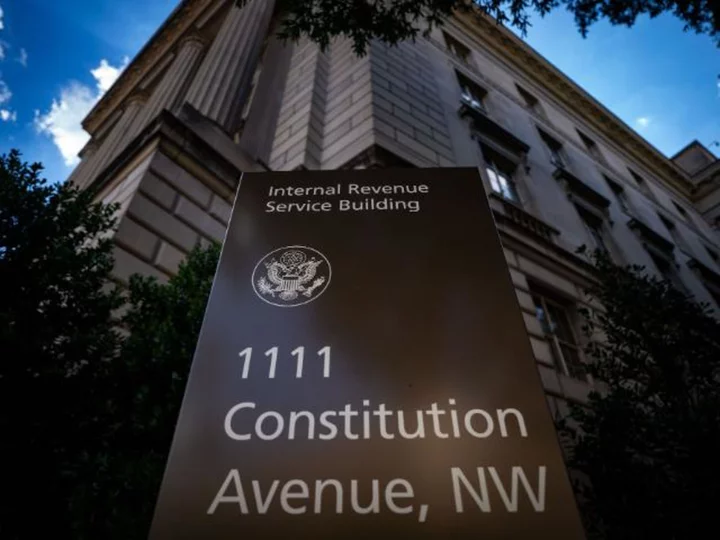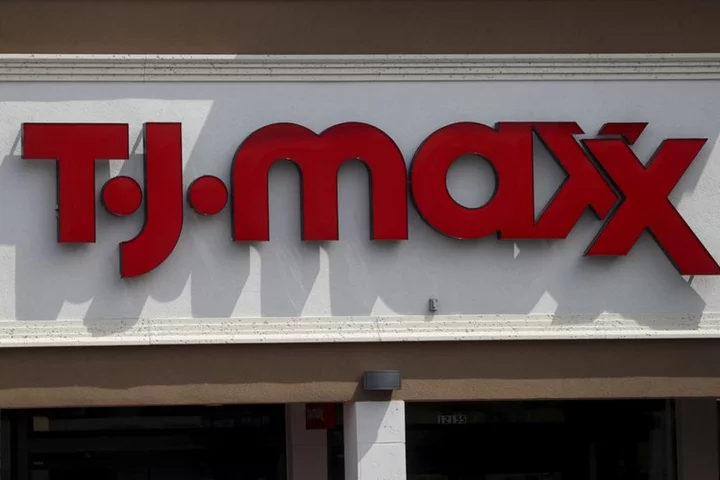Millions of Americans could receive their tax refunds more quickly in coming years as the Internal Revenue Service brings its technology further into the 21st century.
The IRS is launching a major effort to digitize all paper-filed tax returns by 2025, which is expected to cut processing times in half and speed up refunds by four weeks, the agency said Wednesday. Also, taxpayers will be able to submit more correspondence online during the coming filing period.
The two-pronged effort, dubbed the "Paperless Processing Initiative," aims to cut down on the millions of paper documents the IRS receives annually. It comes a year after Democrats in Congress provided the agency with a massive funding boost.
Although the vast majority of taxpayers file their returns electronically, millions still send in paper returns. Also, people remain hampered by the agency's inability to provide many forms online, and the IRS continues to be burdened by its inability to digitally process the paper tax returns it receives.
That is about to change. By next year's filing season, taxpayers will be able to digitally file all correspondence, non-tax forms and responses to notices. This will enable up to 125 million paper documents to be sent in online every year, the agency said.
At least 20 of the most used non-tax forms — including a request for Taxpayer Advocate Service assistance — will be available in digital, mobile-friendly formats to make them easier to submit.
Taxpayers use non-tax forms to ask for or submit information on topics such as identity theft and verification that they are eligible for certain credits and deductions available to low-income Americans.
People will also be able to e-file 20 additional tax forms, which will enable up to 4 million more tax documents to be filed online annually.
These changes will help taxpayers get their refunds more quickly.
By the 2025 filing season, the IRS expects to digitally process all paper-filed tax returns, affecting up to 76 million returns and forms.
This will help improve IRS service by eliminating errors resulting from manually inputting data from paper returns, speeding up processing and getting refunds to taxpayers four weeks sooner.
The agency also intends to digitally process half of the paper correspondence, non-tax forms and notice responses by the 2025 season, enabling up to 60 million paper documents to be handled this way. By the next filing season, all paper documents will be digitally processed.
Also, an additional 150 of the most used non-tax forms will be available in digital, mobile-friendly formats, and up to 1 billion historical documents will be digitized, giving taxpayers access to their data and saving about $40 million in storage costs annually.
Those who prefer to mail in paper returns and correspondence will continue to be able to do so.
The modernization effort stems from nearly $80 billion in funding over a decade that Congress approved last year as part of the Inflation Reduction Act. The money has allowed the IRS to hire 5,000 new agents and greatly improve its telephone customer service during this past filing season, as well as increase audits of higher-income Americans.
The funding, however, is not guaranteed. House Republicans successfully pushed to reduce it by more than $20 billion as part of the debt ceiling package agreed to in June.
Speaking to IRS employees Wednesday, Treasury Secretary Janet Yellen and IRS Commissioner Daniel Werfel both highlighted the importance of the funding boost to the agency's operations.
"It is a very clear example of how, with the right funding and the right priorities, we can relatively quickly move the IRS operations decades forward," Werfel said of the Inflation Reduction Act infusion.









